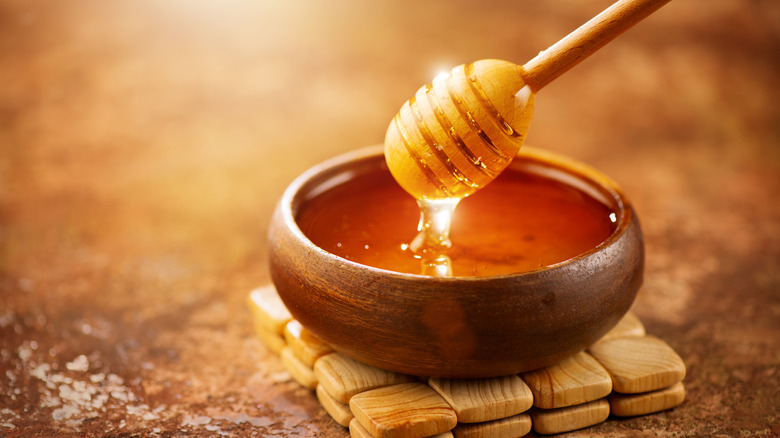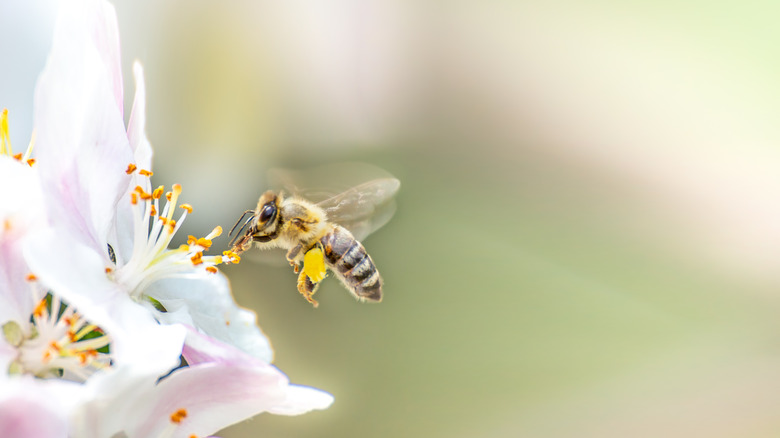Is Local Honey Better For You?
Honey is a super ingredient that has been known far beyond its sweetener uses in homeopathic care, health perks and more. But if you buy your honey in bulk from the grocery store, you could be missing out on additional benefits beyond supporting your local beekeeper.
Does allergy season have you sneezing? Sticking with local, raw honey produced within 50 miles of your area or less is basically a natural allergy shot thanks to the quercetin found in honey (via the Farmer's Almanac). Studies have found that quercetin reduces inflammation and pollen allergy symptoms, while stabilizing the histamine release that sparks reactions in the first place.
The bee pollen and propolis can also help your body build immunity to allergens. And who wouldn't want an excuse to skip an allergy shot?
Other reasons to go with local honey deals with what happens to the product during larger scale distribution. Many of honey's health benefits like its healing properties for sore throats, antimicrobial and antiseptic properties for wound treatments, and inflammation reduction for stomach flus, are lost when it is filtered and heated to high temperatures (via Carolina Farm Stewardship Association).
Other perks of going local for your honey needs
The flavor and ingredients may be affected by industrial methods of mass producing honey. These processes dilute many of the ingredients out, as well as some of the flavors that make the local variety distinctive from the larger batch honey, according to the Carolina Farm Stewardship Association.
It is also more sustainable to support local beekeepers. Commercial honey is typically made by shipping bees from location to location to pollinate one crop, which is unnatural and hard on the bees. Keeping them at their home hive in a more natural method reduces pollution in distribution and the amount of resources needed.
It is important to note that although raw, unfiltered local honey is safe to be enjoyed by most, you should avoid giving it to infants under one year old, according to Farmer's Almanac. The bacteria spores that cause botulism could prove to be a problem for an infant's digestive system, while adults and children are largely unaffected.


